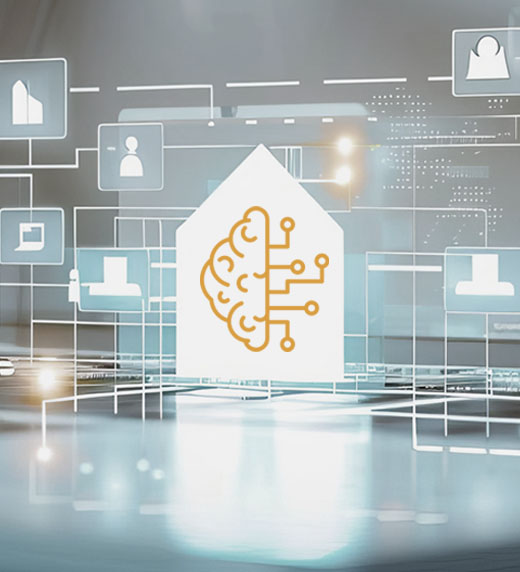
Are you using or considering Workday for your enterprise resource planning (ERP) solution? In this Q&A, AI experts Octavio (OJ) Laos and Derrick Magdefrau and Strategy and Transformation expert Chris Lee discuss the strategic adoption of AI in finance, focusing on Workday’s pivotal role in driving organizational success. Get their perspectives on the opportunities, challenges and best practices associated with using AI in Workday Financial Management — and why now is the time to embrace AI.
Derrick: Forward-thinking companies like Workday are helping leaders achieve real-world success by using AI to make business operations smoother, smarter and more efficient. Workday has embedded AI into the core of its applications architecture, allowing users to easily automate repetitive tasks, make data-driven decisions and propel their business forward.
OJ: AI is increasingly being integrated into every piece of software, especially ERPs. Some of that is in more of a bolt-on capacity. For example, a chatbot acts as a navigation assistant within the tool itself. On the flip side, companies like Workday are integrating AI into the user interface (UI) with tools like predictive analytics and natural language processing to fundamentally reshape the system’s core functions and operations.
Derrick: AI relies heavily on the data that these systems aggregate. Any major ERP or CRM collects a massive amount of data. Machine learning algorithms excel at harnessing this data and making predictions based on it. Software companies are integrating those predictions and forecasts directly into their software, making it easy for users to access and employ the data within the system.
In an ERP, predictive analytics is particularly useful for improving supply chain management. Through AI-driven predictive analytics, organizations can analyze historical data, including vendor information and purchase orders, to identify patterns and trends in the supply chain and harness a model to forecast future demand more accurately. But while supply chain management is a great use case, it’s not alone. You can also use predictive analytics to enhance sales forecasting, strengthen anomaly detection, calculate customer lifetime value and more.
OJ: AI excels where people’s capabilities reach their limits. It does a great job doing simple tasks any person could do. But these tools are most valuable when they can aggregate a wide range of data across your systems and turn it into an asset that offers actionable insights and enhances your decision-making capabilities.
Derrick: When you exceed the limits of human comprehension, machine learning takes over. Say you’re tasked with analyzing an extensive spreadsheet that contains inventory assessments for all the different products you offer. If that spreadsheet has 10 rows and five columns of data to interpret, no problem. But what if the spreadsheet has 125,000 rows and 50 columns?
A person doesn't have the cognitive capacity to process every single one of those spreadsheet cells and make a prediction or an interpretation from that data. AI changes the game by bridging the gap between data overload and the actionable insights that can be gained from it.
OJ: There are valid concerns about using AI — price, data security and job displacement, to name a few. But ultimately, AI is unavoidable. Remember when smartphones were new? Or computers? Some people held out on those technologies for a long time. Now, they’re everywhere. AI is headed in the same direction. It’s better to approach it with an open mind, embrace it and prepare for it rather than ignore it and hope it goes away.
Derrick: There are going to be risks with any technology. But at a certain point, the question becomes, do the risks of not using technology outweigh the risks of using it? And like any tool, AI’s impact depends on how it’s used. It's the action that dictates the result.
Chris: We’re generally referring to the integration of AI into the Workday platform to help businesses become more efficient and strategic. AI in Workday helps users make better-informed decisions and process data faster without hiring additional personnel.
For example, say you’re a senior accountant but still inexperienced in controllership. AI within the Workday platform can step in to provide guidance or training, helping you make more informed decisions.
OJ: Getting more specific, Workday’s AI can analyze contracts for revenue recognition. So, it will extract key information automatically, examine the files and help you understand and use the information. For instance, say your company earns money from leasing assets, and you need to know when a lease date ends to determine when revenue should be recognized. It’s got you covered.
OJ: There are so many different scenarios that showcase the benefits of AI’s integration with Workday. For example, automating supplier invoice processing. Instead of your team doing hours of manual data entry and matching, the AI scans and maps the vendor invoices for you. It uses historical patterns to automatically extract key data like the invoice number, date and amounts.
This automation significantly reduces processing times and errors. It also gives you full transparency into the matching process so you can double-check that invoices are accurately matched with corresponding purchase orders and receipts.
Derrick: Another use case involves cash application automation. Often, matching cash receipts to multiple invoices is a real headache. In a perfect world, you’d have a one-to-one match where you’ve got an invoice and a check that perfectly aligns with that invoice. In reality, payments can be partial, applied to multiple invoices or have missing or incorrect references.
Workday’s AI analyzes historical data to suggest matches for cash receipts. It automatically matches incoming payments with corresponding invoices using various data points, like invoice numbers or payment references. The AI algorithms can intelligently allocate partial payments or payments for multiple invoices. In cases where payments can’t be automatically matched to invoices due to discrepancies or missing information, the AI can flag these exceptions for review, simplifying the resolution process.
Chris: Manually identifying anomalies in journal entries is another challenging task prone to errors. With Workday’s AI-backed anomaly detection, you’re promptly alerted to potential discrepancies thanks to the system’s ability to learn and adapt from historical patterns. And it goes beyond just spotting differences; it also helps you understand and resolve potential errors or exceptions.
Derrick: There’s a learning curve with any new technology. This is especially true with AI. The quicker adoption begins, the quicker you can optimize the technology to your business practices. The longer you wait, the more catch-up you must do. Other peers have already adopted AI and have made good inroads with it. Getting on board now will help you stay relevant and competitive.
OJ: And the technology is there; it’s yours for the taking. The people using these tools in Workday are not specifically looking for an AI tool, but AI is already built into Workday’s ERP and human capital management systems. Leveraging this AI for the future will play a huge role in securing your long-term success and competitiveness. Join the AI conversation. You don’t have to go from your couch to the marathon, but it’s time to put the shoes on and start the journey.
Derrick: If you’re already using Workday and want to unlock its AI capabilities, I would encourage you to look at Workday’s AI training materials and support. They have many resources that can help you understand how to use AI to enhance your specific workflows within the platform. Also, if your organization is struggling to use AI effectively within Workday, partnering with an expert consultant familiar with Workday can be an excellent way to ensure that you get the most out of the system and its AI potential.
OJ: Pinpoint a small area within your existing Workday processes where AI-driven automation could be useful, and use that as a pilot project. This gives you the chance to build confidence with AI while gaining practical experience and insights.
Are you ready to transform your business processes with AI in Workday but unsure where to begin? As a trusted Workday services partner, our ERP experts can help you establish AI goals and use Workday to address your pressing business challenges. Find out how our Workday consultants can help you boost productivity and eliminate manual tasks across your team.


